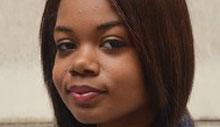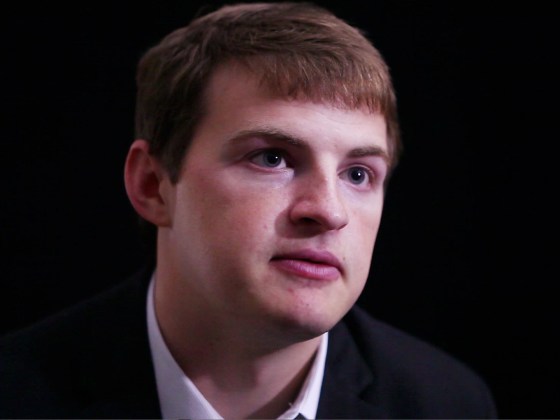
The bright blue-paneled house on the corner was the most memorable of my childhood homes.
I remember watching rats dance across the wall air- conditioner cord, and I’d look at their silhouettes in the darkness and pretend they were ballerinas. Ballerina rats seemed less scary. The blue house is where I learned not to be afraid. I remember walking into my room one night and seeing a rat jump out of a hole in the wall like a dolphin jumping through a hoop.
The blue house was one of my 20 homes during my 20 years of life. I’m not a product of the foster care system, nor am I a product of a traveling military family. My mom just moved us around a lot, and shifting my life from one neighborhood or town to another in my home state of Mississippi came to seem normal.
There was the penitentiary guarded by thorn bushes, a red brick house with windows clothed in burglary bars and doors locked with deadbolts. It was designed to keep people out, but sometimes it felt like it was meant to keep me inside, like a prison. My room was the living room, also known as cell block “C,” “C” for Crystal.
Ironically, out of all the places I’ve lived, it was the only one that got invaded by thieves. I came home to tossed furniture, a missing camera and computer, among other things.
How did they get in? They kicked in the wall air conditioner and crawled in. My sanity crawled out.
At 5 years old, I was introduced to the meaning of divorce at the peach house in State Line, Miss. It’s the first house I recall after my parents divorced.
I remember waiting by the door on a Friday night for my dad to show up for his weekend with my brother and me. I waited and I waited, but he never showed up. I was so young, but I still remember that feeling. Years later, I know my dad is a great father who is there for me today in every way. But that day caused some abandonment issues.
I was a teen when my mother remarried. Her husband moved us from our two-bedroom duplex to his three-bedroom house on the other side of town. I had my own room there, but it wasn’t worth the hurt that came with living there. This marriage reminded my mother of Tyler Perry’s Diary of a Mad Black Woman, minus the happy parts, plus two children.
As I watched all of our belongings piled on the front porch, courtesy of him, I saw it was time for us to move on.
It wasn’t all bad. I remember one house where we lived the simple life, when I was little. Waking up from my nap to ride with my aunt and uncle to pick up feed for the pigs, priming and pumping water for the well, and snapping peas galore — that’s what I remember when living there. We used to ride for what seemed like hours to an area of flat land with a pipe in the ground, spurting out a never-ending supply of water. I’ve never tasted water so good.
And I lived in a house I called a piece of heaven, just once. It was such a beautiful place. God had to be there. Maybe He saw that my mother, my brother and I needed some rest. Maybe He wanted to show us life isn’t always filled with trouble. It had the most beautiful French windows in the dining room. When the sun was shining just right, it transformed the room into a place fit for kings and queens. We only lived there for a month, but it was a month of bliss.
There’s only one house I consider a home, my dad’s place. A happy family lived there once, or so I’m told. I was too young to remember then, but I do have later memories of playing in red dirt, watching dad fix on cars and the musty stench of being outside all day.
That home, where I lived every other weekend through high school, is where I felt the most human. In my 20 years, Dad’s house has always been there, welcoming me. It’s a cold sip of sweet tea on a hot Sunday. It’s stability. I could live in a million places, but Dad’s house will always be home.
Along the way, I learned that circumstances don’t dictate your future. And they didn’t dictate mine. And at one point in my college literature class, my instructor introduced us to “coming of age” stories about young people going through struggles that were key to their development into adults.
To be a great storyteller, I believe you have to first know your own story. So that’s when I began to think that growing up in 20 homes was my story. Maybe all of the hurdles and joys in my life have been key to my growth. For once, I felt like I had some control. Knowing my own story, I felt like an adult.
I want to be a human first and a journalist second. To be a human is to feel human things: happiness, loss, pain, fear and sanity. To be a journalist is to use these things when telling stories.
Crystal Garner is a junior broadcast journalism and computer science student studying at The University of Southern Mississippi.







1 comment
Comments are closed.